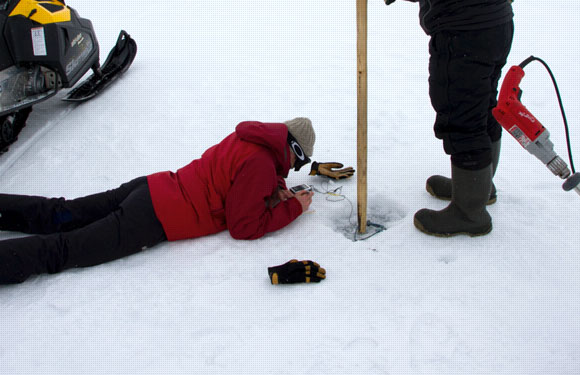
Winter Sea Ice
Increasing sea surface temperatures are resulting in less winter sea ice along Newfoundland and Labrador's coasts. This could bring some opportunities in the form of fewer ice-related ferry delays and potential new routes. However, sea ice is also very important to many residents of the province, including Aboriginal peoples, who depend on sea ice as a winter highway to access traditional food, wood, and other communities. Portions of winter trails between coastal Labrador communities include sea ice, and changing conditions have hindered trail marking and grooming in recent years. The Nain Research Centre's SmartICE (Sea-ice Monitoring and Real-Time Information for Coastal Environments) initiative is working to address knowledge gaps about these impacts by integrating remote sensing, adaptive technology, and traditional Inuit knowledge.

The Nain Research Centre's SmartICE
Photo courtesy Nain Research Centre



